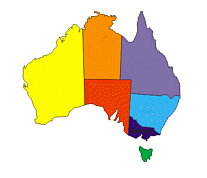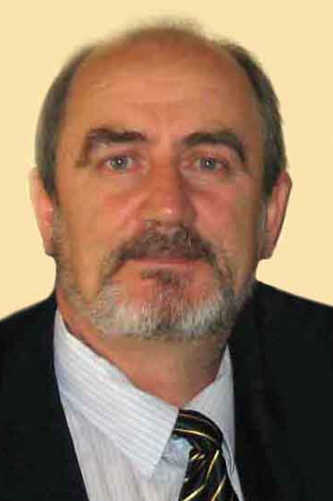I
have written this article as a result of speaking with Australians
whose origins were from another country and had lived most if not all
of their lives in Australia.
Many expressed to me that they still felt some emotional ties to the
“old country” and at times were drawn back to their place of origin.
Many resolved this matter by forgetting altogether their heritage only
to find that it came back to haunt them later in life, and others
suffered from an identity crisis even after their long sojourn in Australia and
worse still, some fell into depression amongst other related
illnesses.
This
little article by no means explains how an Australian born overseas
from a different culture, colour and religious beliefs feels, even now
after all this time; but it does go to ease some of the unresolved
questions and feelings one has about their origins. I can say without
a doubt that I am an Australian of Hellenic background without having
the fear of being ridiculed. As such, I have always maintained that
the word integrate is a far better word than assimilate.
Australia has become a nation of many cultures and as a result has
been able to weave their threads of cultural diversity into the loom
of Australian society. This is a good thing for Australia and for
Australians as a whole for we need new blood to revitalise and our
nation in becoming a future world power in our neck of the woods
without other nations feeling threatened by our existence. The nation
in the past 60 years post WW2 has gone from strength to strength and
has met every challenge and overcome many barriers with courage,
integrity and the resilience of its people. It has fought a number of
battles to ensure the freedom of its people and its very existence as
fledging nation during its early years.
Australia to achieve its goals needed new blood and manpower to build
the nation to where it is today. In addition, Australia opened its
doors and welcomed many from diverse and colourful cultural
backgrounds and integrated them into jobs crucial to Australia’s well
being. In doing so, the new settlers had to overcome their own fears
and obstacles and learn the hard way of integrating into a society
that was completely alien to them. It was a difficult and emotional
time for many of the new comers who had to balance the paradigms of
their cultural past with their new environment and try
where possible find solutions without losing one’s identity in the new
world.
Language was a problem, education, food another, hygiene for some it
was something new and for many being accepted in their new environment
was sought after. While it was not uncommon to hear of stories where
the youth suffered from physical and psychological abuse, the parents
also suffered the same during their working life and in later life
suffered further when depression set in. During the early years, many
new settlers were called derogatory names and ridiculed with the aim
of lowering their self esteem and made to feel insecure and second
class citizens by those who should have known better.
However, over time the new settlers became entrenched into the
Australia society and through sheer hard work, made Australian their
new homes, raised their standard of living, enhanced their education,
purchased property and were influential in reshaping the
Australian landscape. In many cases this was achieved by the melding
and welding of two cultures into one without losing one’s identity at
the expense of one or the other.
Selling
the new settlers to the Australian people was no easy task as Arthur
Calwell found out when he was bringing in southern Mediterranean
Europeans and only won the day by the publicity of blonde, blue eyed,
tall of stature and Anglo looking Balts from the Baltic countries?
This well coordinated publicity stunt swayed the Australian people and
nothing more was said on a great scale. Soon after the Italians,
Hellenes (Greeks), Egyptians, Germans, Dutch and Russians arrived on
the Shores of Australia by the boatload or later by air.
As the
new settlers began to grow and integrate within the Australian
society, they soon found that they faced resistance from their
Australian hosts whether it was at an institutional level or in their
daily lives. To overcome this frenzy of negativity to the new arrivals
the word multiculturalism was born to navigate through the muddy
waters of political opinion and political aspirations.
Whether
it’s due to the word “multiculturalism” or not is one of conjecture
and the subject of much debate amongst all Australians. From the
author’s point of view, the word multiculturism is merely a vehicle
upon which it supports new arrivals to this great nation of ours to
integrate into its society without the need of fearing abuse and ill
treatment like their predecessors post WW 2.
The
internet and the introduction of social media have entered all of our
lives and as such are here to stay, whether we as individuals like or
not. It’s a phenomenon that has been sweeping the world crossing many
barriers whether they are of a physical, religious, psychological or
cultural nature, its overcoming all resistance.
One
only has to look at the Middle East and what has happened during the
well known “Arab Spring”. People are becoming aware of their rights
and that life can be better as a result of having access to a store of
knowledge that was otherwise hidden rim them by their nation’s
political and religious leaders.
Multiculturism has had a poor start in Australia as it was not
portrayed to the Australian people as a vehicle to becoming
Australian, but it was hijacked by those intent on retaining the past
without moving forward and developing as a nation. Multiculturism will
soon be overtaken by Australianism or another word that describes an
Australian whose origins and culture were external to Australian
shores.
Take
for example the Hellenes or as the Romans called them the “Greeks”.
They have integrated well within the Australian society without losing
entirely their Hellenic heritage. Although a new Hellenic
consciousness is slowly rising amongst the second and third generation
of Australians of Hellenic origins, it is no way detrimental to their
loyalty or status to the Australian nation or its institutions. The
Australian Hellene of today is no different to an Australian who is of
a Gaelic, Kelt, (Celtic), and Germanic, Islamic, Baltic, Asian,
Oceanic or African background.
They
all have the same needs, wants and status as their next door
neighbour. The fear of ethnic enclaves is a thing of the past,
although it is true that ethnic communities will tend to stick
together in suburbs that are considerably more aligned with their
cultural origins. However Australia is a vast country and its people
are as tolerant as they are resilient in their attitude to new
settlers. The average Australian in the street does not care where the
new settler comes from as long as they contribute to the well being of
Australia and adhere to its institutions and rule of law. There are no
longer any barriers for the new settlers, no more doors closed and
certainly no closed shops so to speak where an individual feels
unwelcome.
The
author would like to conclude with the words of a famous Australian
whose far sighted words of wisdom still ring true today as they did
back then in 1890 prior to Australian becoming a nation. One must keep
in mind that at the time of making this speech, Briton was master of
the oceans seas so to speak, hence the saying “Britannia rules the
waves”
“Why should not the name of an Australian be equal to that of a
Briton? Why should not the name of an Australian sailor be equal to
that of a British sailor? Why should not the name of an Australian
citizen, be equal to that of the citizen of the proudest country under
the sun? All those grand objects would be promoted by a national
organisation. But there is something more. Make yourselves a united
people; appear before the world as one, and the dream of going “home”
would die away. We should create an Australian home. Henry Parkes,
Federation Conference, Melbourne, 11 February 1890.”
As an
Australian whose origins began some 62 years ago in a little village
called Pellana, in Lakonia Greece (Helen of Troy and her husband King
Menelaus fame), I have travelled across this vast and beautiful
country of ours, have worn the uniform of Australia for some 30 odd
years, fortunate to have met so many wonderful people from all walks
of life and shaped me into who I am today.
This country of ours that we call
Australia is where my four sons (whose parents are of Anglo and
Hellenic heritage) will live on, long after I have gone, content in
the knowledge that it is their home. I as an Australian of Hellenic
background can be forgiven like my predecessors whose origins were of
Anglo Saxon background may have emotional and cultural ties to our
place of birth but I still call Australia home.


